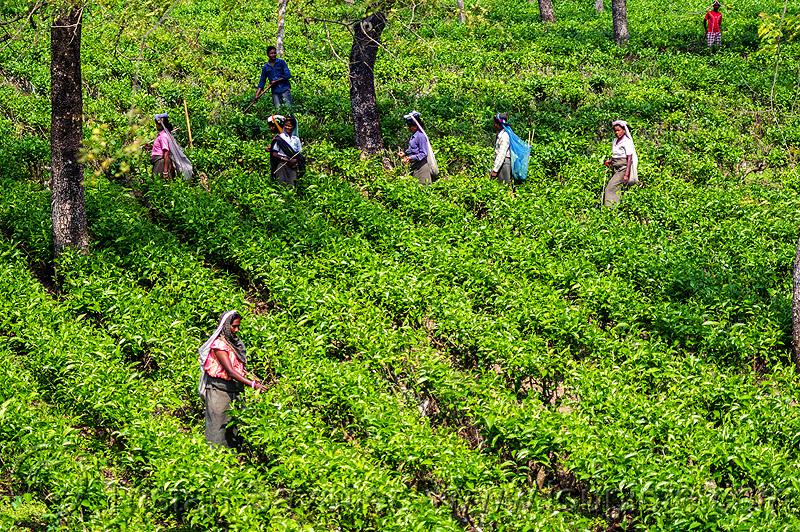Basic Welfare Provisions for Tea Estate Workers Under Threat

Image Used For Representation Purpose Only
Monday marked the 19th anniversary of the infamous killing of 17 workers of the Manjolai tea estate, who drowned while trying to escape police brutality in the Tirunelveli district of Tamil Nadu. Despite the subsequent uproar, things have remained difficult for workers in the sector which is largely concentrated in the Nilgiris district even as the big tea estate owners have made substantial profits.
India is the second largest tea producer in the world with an output of more than 9 lakh tonnes a year and the Nilgiris is one of the major hubs of production in the country. However, even today, workers continue to toil for seven days a week for meagre pay.
19 years ago, it was a protest against such circumstances that led to the deaths of the 17 people. Frontline magazine, on August 3, 1999, reported that the protesters had marched towards the Collectorate to resolve a wage issue. They sought the release of 652 workers who had been arrested for conducting a demonstration in front of the Collectorate. They also wanted the State government to take over the Bombay Burmah Trading Company.
However, the police responded harshly. “Besides restoring to lathi-charge, the police fired two rounds in the air and indiscriminately used a new weapon in their armoury-stones and bricks”. The protesters fled the assault and 17 people, including two women and a child, died. Most of the victims drowned in the Thamirabaranai river.
Nearly two decades after the incident, workers continue to fight for their rights for a dignified life. 1.5 lakh people depend on tea plantations in the Nilgiris district. Workers in tea estates earn an average of Rs. 306 per day and work all seven days of a week. In 1951, the Government of India passed the The Plantations Labour Act (PLA). However, even the basic provisions provided for the workers under the Act are in risk of being diluted, say trade union officials who are working in the sector.
The Act assures cradle-to-grave schemes for workers and lays the onus on the factory owners to provide these benefits. The Act stipulates that workers should be provided housing, drinking water, medical facility and their children should get education. Provident fund cover is also a must. The Act also limits work to 48 hours a week.
However, according to trade union officials, factory and tea estate owners have been trying to shift the burden of the provisions on the State government by trying to bring about a change in the existing Act. “Currently the proposal is suspended because of our protests but it can come into effect any time,” said Gopi Kumar of the Centre of Indian Trade Unions (CITU). “The wage paid to the workers is forcing them below the poverty line so we are demanding a salary of Rs. 18,000 per month. The Provident Fund (PF) scheme is implemented only in some companies. Even in those companies, instead of the employee and the employer contributing 12% each, the entire 24% is deducted from the workers’ salaries,” he said.
A sectoral crisis has also contributed to the problems. The larger tea manufacturers have continued to benefit while those who own smaller plantations have been facing the heat. The implementation of free market policies saw cheaper tea from foreign countries flooding the Indian market, Gopi Kumar noted.
Dhavamudhalvan, a documentary filmmaker, said that the rate of a sack of fresh tea leaves had remained the same over the past two decades. “Many small-scale tea estate owners have changed their lands into vegetable farms. Many owners are selling their factories to private companies. Even the government-owned Tantea factory might be sold to private companies. Only a few companies follow the PLA,” he added.
The situation is bad for the workers even while the going is good for the sector. Most workers end up having to do overtime beyond 8 hours a day, leading to anaemia and weakness. “The tea estate workers are seeking better employment in the cities. There is mass migration. Hereafter, there will be no permanent jobs in tea estates; everything will be temporary. Our next generation will never want to be employed in a tea estate”, added Dhavamudhalavan.
Get the latest reports & analysis with people's perspective on Protests, movements & deep analytical videos, discussions of the current affairs in your Telegram app. Subscribe to NewsClick's Telegram channel & get Real-Time updates on stories, as they get published on our website.
























